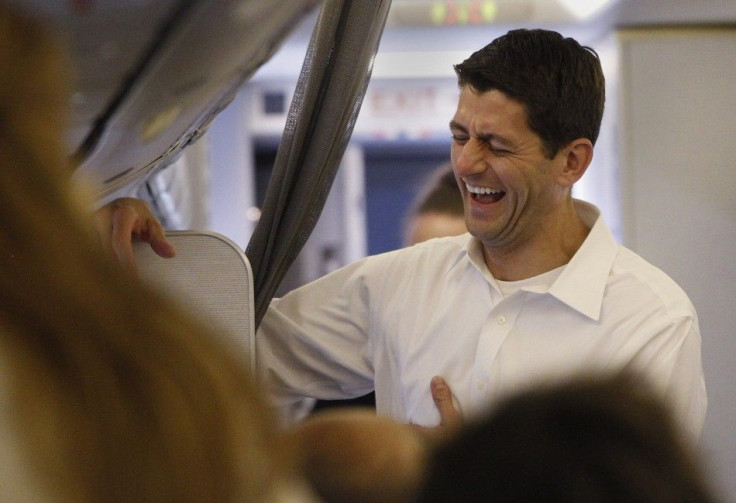Ryan Pick Has Little Effect On Race, Instant Poll Finds

Mitt Romney received no immediate boost by naming Paul Ryan as his running mate, according to a Reuters/Ipsos poll released Monday.
Some 51 percent of those surveyed said the decision did not change their opinion of Romney, a former private-equity executive and Massachusetts governor who will face President Barack Obama in the Nov. 6 election.
Another 26 percent in the online poll said they viewed Romney more favorably after he added the 42-year-old Wisconsin congressman to the ticket on Saturday, while 23 percent said they viewed him less favorably.
The survey of 508 registered voters was conducted for Reuters from Saturday through Monday.
Ryan, the House Budget Committee chairman from Wisconson, is a polarizing figure in Washington, where he has led his party's push to cut domestic spending, lower taxes and scale back the size of the federal government.
A hero to conservatives, Ryan has given Romney a jolt of energy on the campaign trail after several difficult weeks marked by gaffes and continued questions about his personal finances. The two men basked in the cheers of thousands of supporters at campaign stops in North Carolina on Sunday.
But Ryan remains largely unknown to the wider public.
While 80 percent of those surveyed said they had at least heard of Ryan, only 35 percent said they were familiar with him.
Some 42 percent said they did not know whether he was qualified or not to be president - a higher percentage than the 33 percent who said he was not qualified and the 26 percent who said he was.
One warning sign for the Romney campaign: by a margin of 44 percent to 29 percent, voters said the incumbent vice president, Joe Biden, was more qualified than Ryan to serve as president if the need arose.
"He's fairly unknown in who he is and what he stands for," said Ipsos vice president Julia Clark. "He's a Wisconsin congressman, not a nationally known figure."
That is likely to change in the coming weeks as Ryan campaigns across the country to build enthusiasm among grass-roots conservatives while Democrats attack his budget plan as one that would gut programs for the elderly and the poor.
The precision of the Reuters/Ipsos online polls is measured using a credibility interval. In this case, the poll has a credibility interval of plus or minus 5.1 percentage points for all respondents.
Ryan's signature proposal would change the popular Medicare health plan for the elderly into a voucher program that would give future retirees a fixed amount of money to buy traditional Medicare insurance or competing private plans.
Ryan says that approach would rein in spiraling medical costs that threaten the program's solvency in coming decades. The nonpartisan Congressional Budget Office estimated that one version of Ryan's plan, passed by the House last year, would increase retiree's out-of-pocket medical costs by about $6,400 annually.
Democrats argue that the plan would end guaranteed medical coverage for seniors, and have made it a centerpiece of their effort to win back control of the House.
With Ryan now on the Republican ticket, independent analysts say it could hurt Romney's chances of winning in retiree-heavy states like Florida.
But Ryan's plan might not be as toxic as Democrats think.
Between 54 percent and 49 percent of voters surveyed in a June 2011 Reuters/Ipsos poll said would support a Medicare voucher plan, depending on how the question was worded, with relatively little difference in support between Democrats and Republicans.
© Copyright Thomson Reuters 2024. All rights reserved.











